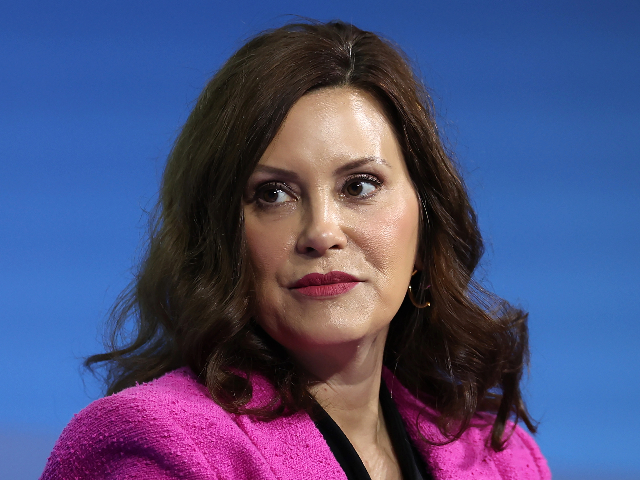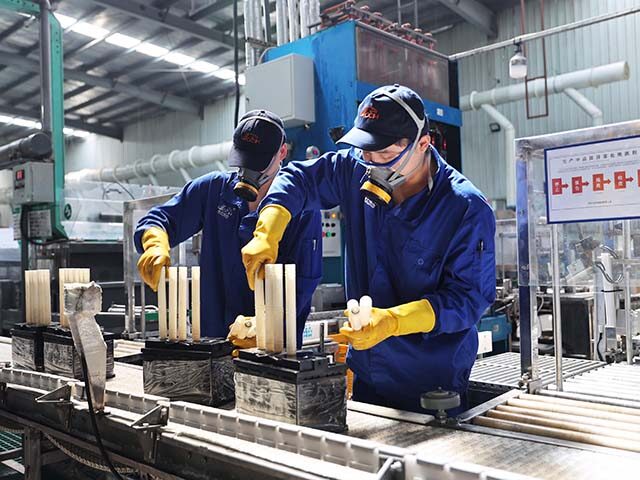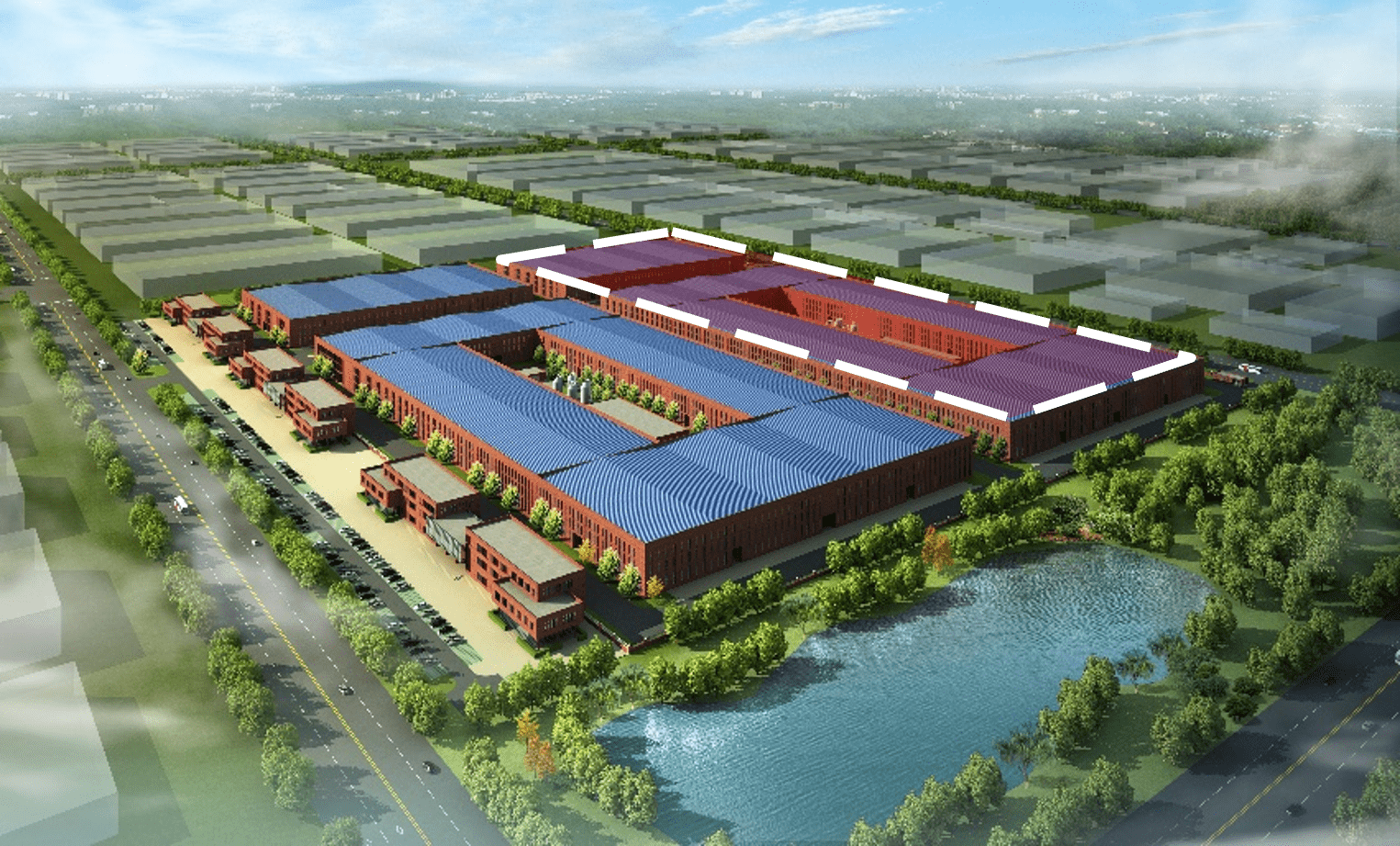The Michigan community of Green Charter Township on Friday lost a court battle to block Chinese-linked electric vehicle (EV) battery manufacturer Gotion Inc. from building a factory near the town.
Michigan is generally friendly to Chinese investments and the Gotion project in Green Charter Township was specifically endorsed by Gov. Gretchen Whitmer (D), who called it “the biggest ever economic development project in Northern Michigan.”

Gov. Gretchen Whitmer (D-MI) delivers remarks at the SelectUSA Investment Summit on May 04, 2023, in National Harbor, Maryland. (Kevin Dietsch/Getty Images)
Gotion pledged to spend $2.36 billion on the factory, which is supposed to create 2,350 jobs. The company settled on Green Charter Township, a rural community northwest of Detroit that acts as a self-governing district of Big Rapids, as the location for its battery plant. The township signed a development agreement with Gotion in August 2023.
Sentiment among the township’s residents soon turned against the factory project, in part because Gotion Inc. is a U.S. company that is wholly owned and controlled by a Chinese firm called Hefei Gotion High-Tech Power Energy Co. Ltd.
Gotion Inc. was obliged to describe this relationship in detail in its filings under the Foreign Agent Registration Act (FARA). In those filings, and in subsequent statements by Vice President of North American Manufacturing Chuck Thelen, the company has denied being controlled by agents of the Chinese government and insisted the Chinese Communist Party will not have offices in its proposed Michigan factory.
However, skeptical politicians and reporters in Michigan uncovered Gotion corporate documents that said the company is required to “set up a Communist Party of China organization” and ensure the implementation of Communist Party guidelines within all corporate operations. Investigative journalists discovered Hefei Gotion High-Tech employs hundreds of Chinese Communist Party members, and its CEO is a high-ranking Party official.
Thelen insisted these company documents were misunderstood or misrepresented by critics and their practical meaning was simply that the American subsidiary of Gotion was not allowed to do business in China. Somewhat awkwardly for the American branch and its CEO, Chinese state media enthusiastically celebrated the Gotion plant as a major step toward the Communist regime’s worldwide domination of the EV industry.
A controversy erupted over whether Gotion had misrepresented its relationship with the Chinese government or not, especially since the new factory would be located within a hundred miles of Camp Grayling, the largest U.S. National Guard training facility. Concerns were also raised about the plant’s compliance with wetlands regulations, and the heavy water use anticipated for large-scale battery manufacturing.
The Gotion project received the blessing of the U.S. Treasury Department Committee on Foreign Investment in the United States (CFIUS), but that only added fuel to the controversy, as critics claimed CFIUS was derelict in its oversight duties, allowing the Gotion project to pass without full transparency by declaring the company was operating outside of its jurisdiction.
WATCH — Manchin: Biden’s Subsidizing EVs with Parts Because We Don’t Allow Mining:
The debate in northern Michigan became heated, as supporters of the Gotion deal dismissed opponents as paranoids and Luddites who never wanted their pastoral community to grow or change, while opponents said supporters were foolishly letting greedy politicians, corporate interests, and the Chinese government take advantage of them.
In March 2024, Gotion filed a federal lawsuit against Green Township for refusing to approve a water line needed by the battery plant. The lawsuit alleged that Green Township was reneging on its August 2023 development agreement and attempting to scuttle the battery factory.
In the time since that agreement was signed, seven township board members who approved the project had either resigned or been voted out of office. Their replacements ran on promises to block the battery plant.
“To prevent the Township’s sudden recalcitrance from unraveling an endeavor already years and millions of dollars in the making, this Court should order the Township to comply with its obligations under the parties’ agreement by, among other things, reinstating the resolution to approve the connection of the City’s water systems to Gotion’s project,” Gotion’s lawsuit said.
“It’s unfortunate that Gotion has had to resort to litigation to get the township to comply with their obligations under the agreement,” Thelen remarked when the suit was filed.
“This case is simply about a township exercising its constitutional and legislative authority to control its future,” township attorney Seth Kotches said in his filing to the court.
On Friday, U.S. District Judge Jane Beckering granted Gotion’s request for a preliminary injunction that requires Green Charter Township to comply with its August 2023 development agreement.
Beckering cited the $24 million already invested in the project by Gotion on “real estate acquisition costs and other related fees” as a reason for issuing her injunction, since blocking the project would inflict significant financial harm on the company and its local business partners.
“We are pleased by the court’s decision to grant this injunction, and look forward to working with the township to move the project forward,” Thelen said on Monday.
“We’re just disappointed at this time,” said Green Charter Township Supervisor Jason Kruse, without indicating whether the board planned to appeal the judge’s ruling.


COMMENTS
Please let us know if you're having issues with commenting.